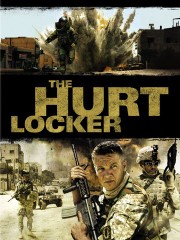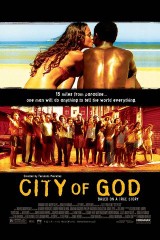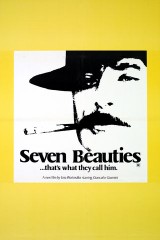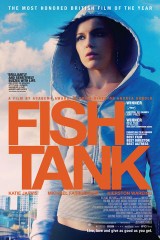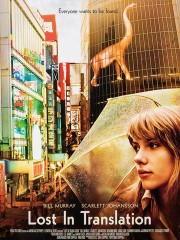Filmmaker Selects: Issa López’s 10 Movies for Women’s History Month
The Tigers Are Not Afraid director shares her rejection-filled journey from telenovela ghost writer to the critically celebrated face of genre's future –- and the filmmakers who inspired her along the way.

(Photo by Vivien Killilea/Getty Images for NALIP)
Director Issa López roared into the genre scene with her film, Tigers Are Not Afraid, in 2019. The movie about children seeing ghosts and escaping supernaturally scary narcos captured the imagination of horror film festival audiences, leading to its eventual theatrical run and streaming release on Shudder and then to On Demand.
But the path to get her passion project to audiences was not a short one. In fact, the little girl who grew up watching Andrei Tarkovsky and Steven Spielberg movies with her dad worked her way up in Mexico City’s film industry, making a name for herself first as a romantic-comedy director. But with an undying love of monsters, ghouls, and other things that go bump in the night, López made Tigers Are Not Afraid against all odds.
- Read more: Filmmaker Selects: Alma Har’el’s 10 Movies (and a Series) for Women’s History Month
- Read more: Filmmaker Selects: Gina Prince-Bythewood’s 10 Movies for Women’s History Month
Fortunately, the risks have paid off. Now, the director is juggling multiple projects with collaborators she admires and has many more scares for audiences in mind. As part of our “Filmmaker Selects” series, López spoke to Top Critic Monica Castillo in-between busy writing sessions about her career trajectory, her upcoming projects, and some of the movies she recommends fans check out for Women’s History Month.
Monica Castillo for Rotten Tomatoes: Tigers Are Not Afraid is not your first movie, but it’s the film you took the biggest chance on. How did that become the movie you decided to make a new name for yourself?
Issa López: As it happens with filmmaking, you have plans and you think things are going to turn one way, and they never ever, ever work that way. So finally, because I had been successful for a long time with comedies, I had enough influence in the Mexican industry and enough respect as a director and as a writer to get into serious subject matter. And I was developing a very ambitious movie about the origins of the cartels during World War II, between Mexico and the US. And I was going to write and direct.

Issa López’s Tigers Are Not Afraid.
And that, of course, fell apart horribly. Back then, I felt that it was the end of the world. I had invested five years [into the project]. It was my one hope to get away from only comedies. And I didn’t know yet that you can’t have one project or even two or three, you have to have more because they will stumble. So when these fell apart, I had nothing, and I was going through a horrendous breakup and my father had died recently. And I had to put my dog down. It was a mess. And the one thing that kept me sane was writing every day, because I didn’t have time for more in trying to resuscitate this giant. I would have squeezed writing one scene of a movie for my sanity, and that was Tigers. And eventually it came together and I looked at it and I realized I really had to make it. And I knew that it was going to be a very strange little animal – part horror, part political drama, part thriller, part fantasy, and investors and distributors hate movies that are part, part, part, part, part. They hate them. But I knew I had to bring it into the world.
What were some of your favorite moments on set?
López: There were so many of them. I was having a conversation a couple of days ago with my first AD, who is now a director in her own right and makes me incredibly happy. Her name is Hiromi Kamata, and she’s the director of Selena: The Series. I have to say that many of the best moments in that movie didn’t come from my mind. They came from the mind of my team. I love to create an environment where you trust the people you’ve called to this battle with you, and they come to you and they say, I have an idea of how this can work. And sometimes it doesn’t, and sometimes, it’s so much better than what you had in mind. So there’s a lot of her mind in that movie, but we were talking about experience, and it’s kind of extraordinary how in telling such a dark painful, scary story, we had such a great time. The kids were loving. It’s incredible, because you see them suffering throughout the movie, and they were having a blast. They loved it so much that at the day’s end, they came to me to pitch an idea for the sequel, because they just didn’t want to stop making the movie. And I know they were enjoying it. One of my producers was saying that they had Stockholm Syndrome.
How did you pool all those ideas about how the world of the movie would look like to create an immersive experience for your audience?
López: For me, it was the clash between horror and hope. It’s pretty much a war zone. These cities that have been abandoned by its inhabitants, either because they left or because they vanished or because they died. Entire sections of cities have become ghost towns. And these kids have taken them over and made them their own. They had decorated them with their totems and their warriors and their war paint to defend this turf. Eventually, in the movie, they move away because they are on the run into parts of town that had been taken over slowly by nature. You have rooms in which grass is growing inside and it becomes this dreamscape. I wanted to have ruin next to beauty, and that encounter gave me images like a flooded room, that idea of a broken chandelier in a pool where there’s wild koi fish is what created this landscape slowly.
What was it like to finally bring Tigers Are Not Afraid to audiences?
López: It was a complicated journey. I thought when I started production that the complicated part was going to be getting it made, and it was not. Once it was made and finished, me and my accomplices, my team, we looked at the movie and we were like, this doesn’t feel bad, and it doesn’t feel similar to other things. It feels pretty unique. We felt very cocky that we could get the movie into the festivals. We were at the beginning like, should we submit to Toronto or Sundance? And eventually we got rejected from all of them, all of them – Toronto, Sundance, Berlin, Venice, Tribeca, South by Southwest, all of the festivals. It was kind of shocking because we didn’t feel that necessarily we had a masterpiece, but we felt that we had something unique enough and decent enough to get in that. No.
It got really painful because after getting a number of rejections, you have to question yourself. Eventually, it became funny, and I was ready to give up and make more comedies, which I will always go back to. And then I thought about the genre festivals, because it is a ghost story. And I sent it to Fantastic Fest. The first time that I saw the movie with an audience in my life was at Fantastic Fest, and I was hopeful, but I was not expecting what happened. The raw emotions I saw in the audience and the way people would stop me at the end in tears to talk to me about it, it was a beautiful shock, and it especially felt great after the journey of rejection that we had, and it snowballed from there. That long journey of trying to make a huge movie that failed, resulting in this strange tiny movie, making it, getting all the rejections, and then getting this reaction so many years later, just makes you feel that maybe karma exists, that if you never lose hope and vision of your ideals, you get there. It’s a dangerous thing to believe, but I’m starting to accept it.

(Photo by Issa López's Tigers Are Not Afraid.)
What was your experience like before taking on Tigers Are Not Afraid?
López: I think that filmmakers can make a career in two very different ways. One is seizing the opportunities that you find along the path and taking whatever opportunity to try to say your own thing. The other one is the anarchist warrior that decides to make the movie that they came into the world to make. I admire those strange unicorns. I’m not that. And especially, it’s hard because you’re a woman, and it’s a lot harder to push those walls. Now, it’s easier – well, it’s less difficult, which is different. But when I started, that space didn’t exist. Very few movies were made in Mexico. When I went into film school, eight movies were made in Mexico and those eight movies were made by the same four guys. It was unthinkable to break into that. I had to build my own way and my way of going there was through the cracks. Telenovelas shaped half of the planet. That’s the truth. The only way for me to go into visual storytelling was telenovelas. And the only way to go into telenovelas was by ghost writing for other writers. I had to first ghost write then become a proper telenovela writer, then become a film writer.
And at that point, Mexican cinema had a revival, but it was through comedy – romantic-comedy specifically. So I had to write rom-coms, which has never been my genre. And then I was like, okay, I can direct too. Eventually, I got a lot of respect as a comedy director. I love comedy, but the truth is that little girl that watched horror movies and genre, and a little bit of Bergman and perhaps too much of Tarkovsky wanted to make a movie for me, for that little girl. And that’s how Tigers happened.

López cites Poltergeist as an early influence. (Photo by © MGM/courtesy Everett Collection)
Jumping back in time, who were some of the first directors that influenced you?
López: It was a very strange mix because I was, on one hand, a regular kid who just loved movies. And on the other hand, I was raised by my dad because my mom died when I was very young. My dad was obsessed with European cinema, art house cinema, and the big film masters. At the time, Tarkovsky was at the height of his popularity, everybody was discovering the next Tarkovsky movie and we would go when I was six, eight, 10-years-old, and I would sit and watch Solaris. Because your taste is not completely gelled at that age, I could completely enjoy Solaris without questions about pacing, because everything is new for you. At the same time, I was obsessed with Spielberg’s movies and I was completely captured by the idea of Poltergeist or The Goonies.
I never thought I could make cinema by watching Bergman, but when I watched E.T., I was so completely floored and transported by that experience. I grew up in Mexico City, and I had this feeling that someone needs to do this [movie], but in Mexico. It hasn’t been done. Briefly, I entertained the idea that I was going to abandon my dream of becoming an archeologist to become a filmmaker. Then I decided I was going to be serious, be an archeologist. That was not serious though, and I went back to cinema. I discovered down the line that it was more about Raiders of the Lost Ark than what it was about archeology.
You’ve alluded to it already a little, but this industry is not always welcoming to women. Has that changed at all in your experience?
López: I believe that this year has been crucial. I think we’re seeing it in the awards season, and you can take it seriously or not, but it is a signal of something. It’s a sign of something. It’s signaling something. If you look at the hopefuls, you’re going to see a lot of women filmmakers in a way that you didn’t see even a couple of years ago. And I think that part of it is the awareness that started in 2017, which is the year I opened Tigers. And the awareness of how an entire industry had been brutally, not only unfair, but punishing for the entire female part of it.

Tarkovsky’s Solaris. (Photo by Courtesy the Everett Collection)
Genre film has a macho reputation – it’s dominated by male filmmakers targeting male audiences. What has that side of the industry been like for women recently?
López: Well, that was a particularly complicated landscape. First of all, the perception of genre has changed. Thank the gods on this one. When I first moved to LA to try to pursue making movies here, I had the first meetings with the studios and with reps and whatnot, I would mention that I loved horror and I had some horror ideas. Inevitably, the room would cool down, and they would be like, “Oh.” And eventually someone spelled it out to me, which is: Horror is great, but it was like the B-movies at that point, and I’m talking 10 years ago, not that long ago; if you have a chance of making anything non-horror, do that, because once you’re a horror director, that’s it, you’re a horror director
Because it was perceived like a gritty B-movie universe, women really didn’t have a place there. It’s funny because if you look at the numbers of audiences that appreciate horror, so many of them are women. It’s funny that the vocal ones were guys, but so many women love a good ghost story. I’m not a huge fan of slasher films, but I know so many women are obsessed with the slasher movies. It’s this misconception about gender roles, it’s just not feminine to like movies with ax-wielding maniacs. Well, turns out it is. It is pretty f–king feminine, and we have this incredibly violent genre of movies being made by women.
Could you tell us about some of the projects on the horizon for you?
López: It’s a lot of things, too many. I did learn my lesson of, in Spanish we say, “Don’t put all your eggs in one basket, honey.” I don’t do that anymore, so I have a lot of baskets and a lot of eggs. I have a movie produced by Noah Hawley, who I didn’t know before. Noah is the writer and producer, creator of Fargo, the series, and of Legion. We have a project called The Book of Souls about how humanity runs out of souls to put in newborns and we can only get the souls of people who die and the mechanics that awakens in the world. It’s a meditation on privilege, too. All of these languages, all of those themes, resonated with me. So, that’s one thing.
I have a thing with Jason Blum that is an adaptation of an amazing article that Epic Magazine published. The article is written by Daniel Hernandez, a really great journalist, and it’s about a Catholic school – this is a real case outside of Mexico City in a very, very poor area, a massive boarding school that recruits girls from all over Mexico, from the poorest areas, to give them an opportunity to study high school and advance in life. It’s a Catholic boarding school. In 2007, there was an epidemic of hysteric attacks where the girls became paralyzed and they couldn’t move. They would have extreme pain and seizures, and they were convinced they were cursed. It was a huge scandal in Mexico, and eventually it vanished, but what really happened with these 600 girls that felt they were cursed? At the same time, it’s about faith and the strange images Catholicism and ideas Catholicism puts in our heads. It’s about access, how you come from areas where you have no privileges, you have to accept whatever life puts in front of you. It’s about being a woman that is always at risk, be it in the fringes of society or even when you’re put under protection, you’re actually still at risk.

One of López’s upcoming project will see her collaborate with Guillermo del Toro. (Photo by Kerry Hayes/Universal Pictures)
I have a werewolf western with Guillermo del Toro, and that’s completely different. That’s a completely male story. It’s about male revenge, pain, and old, old debts that characters have to pay and the journey they go through that. In the end, it’s about the beast that we all try to keep controlled, but we really can’t control. I also have a project of my own. I think it’s very important as a filmmaker to always have one movie that nobody asked for, which was what Tigers was for me. That is called A Girl with a Thousand Names, and it’s all children. I’m super excited about that one.
Who are some of the up-and-coming women directors people should keep an eye out for?
López: Well, what Chloé Zhao is doing is insane, and as I was saying a moment ago, awards season is here and she’s going to take everything that she hasn’t taken yet. Here she already took everything and it’s fascinating, these contemplative, melancholic, incredibly lyrical movies. It’s not only about female characters. What she did last year was amazing, too. I’m very curious where she’s going to go with that. There’s Ana Lily Amirpour: A Girl Walks Home Alone At Night is so aesthetic and so badass and so absolutely unique and its own animal that I’m very curious about what she’s going to do. I personally know Coralie Fargeat (Revenge), who also can direct action and gore and violence like nobody’s business. She can make ugliness beautiful. I don’t know what Coralie is doing, I’m just so curious. She’s amazing.
Mati Diop! Atlantics is, I’m pretty sure, is my favorite 2019 movie, and I was kind of disappointed that it didn’t get the attention I felt it deserved. That movie’s at the same time a whodunit, a ghost story, a love story, the political reality of what’s happening in the Arabian states where you have extreme riches and extreme poverty, and it’s beautiful to look at. It has everything. I think I’ve watched it like five times.
And finally, who are some of the women directors that inspire you?
López: First of all, and foremost, I’m going to go with St. Kathryn Bigelow, because I feel that she’s been doing this for a while. Another thing that I admire about Bigelow enormously is her ability to move between genres. She doesn’t care much about genre, but she cares about character and story. She started with horror, with vampires no less, and it’s very hard to make a vampire story that is not silly. She’s done heist movies, some of the best in the world, classics really at this point. And she’s done sci-fi and she’s done the most serious political thrillers that we’ve seen. Hurt Locker, for me, is really one of the best movies that I’ve seen. It’s, for me, top 10, that movie. It’s at the same time a character study, it’s a study of political conflict, of imperialism, of the seduction of violence, and it keeps you on the edge of your seat. It’s just amazing.
Issa López’s Tigers Are Not Afraid is available now on Vudu and FandangoNOW.
Issa López’s 10 Films for Women’s History Month
On an Apple device? Follow Rotten Tomatoes on Apple News.
Thumbnail image: Vivien Killilea/Getty Images for NALIP, © Warner Bros., © Sony Pictures, Holly Horner / © IFC / courtesy Everett Collection, © Focus Features, Jonathan Olley / © Summit Entertainment / courtesy Everett Collection



